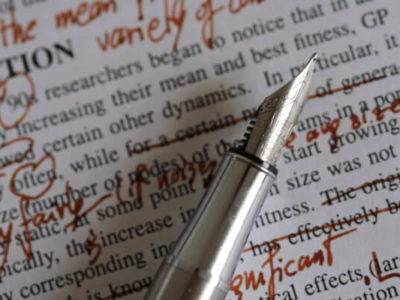For all of us that possess even a vague interest in writing creatively, we’re told to take a creative writing workshop. Within them, you’ll get to practice your writing—what all the famous writers say is necessary on the path to becoming just like them. The key to writing well is to write more, just like anything else. 10,000 hours and all that jazz.
What might catch you by surprise is exactly how many hours you actually spend reading other people’s work rather than writing your own. According to some, this reading will help you just as much as writing on your own. “If you don’t have time to read you don’t have the time—or tools—to write,” said Stephen King in his book On Writing. “Just about everything I learned about writing a good book I learned from reading lots and lots of good books,” said Joe Hill in an interview. Of course, there’s a fine line between the assigned reading of published work and the expected editing of classmates’ work. In one you’re finding the good examples you want to follow, and in the other you’re searching for weak spots you want to address.
This shouldn’t be looked at as a bad thing. Through finding someone else’s struggles, you discover what you appreciate emphasized. Do you find yourself asking for more dialogue in certain scenes, week after week? In some author’s pieces, that may really be necessary, but in others maybe it would just make you happier. Boom, there’s something you’ve discovered that matters to you. And if you’re aware of that, you’ve found what to emphasize in your own.
You also gain skills in spotting small errors in others’ works that you might always overlook in your own work (sorry, CM editors). A mistake using “they’re,” “there” and “their”? In a classmate’s I might spot it from a mile away. In my own work—not even after the 50th time proofreading. If you find out editing is your calling card, you also have a great opportunity to read and edit dozens of your classmates’ work. You can then take those skills to editing all sorts of written works, like a roommate’s history papers to a friend’s book review. Those are as free as renting a library book, so what’s not to love?
Of course, being on the receiving end of such edits from classmates can hurt depending on how personal you want to take them. Does their lack of acceptance of that awkward second-to-last sentence mean that they hate you and will never support you? No. It means you should probably reread that sentence with fresh eyes. They were right—“Progress as broad as that, alongside medical progress physically and chemically, shows how far we have come in the study as a whole and yet how far is left to go with the need to ‘further improve’ such fields” is just not quite right. Forget the awkward wording, you get out of breath just reading it (even in your head).
As uncomfortable as sitting in the center of a class with everyone brutally discussing your work is, that feedback is necessary to becoming a better writer. With your workshop’s help, you might be able to edit a piece to the point where it could get published or entered into competitions, if you choose to put yourself out there for the publishing world to see. You’ll learn how to accept criticism to the degree that you consider what people point out rather than blocking it all out. And, maybe, just maybe, you end up some crazy place like this one, writing your heart out to fellow students.



















